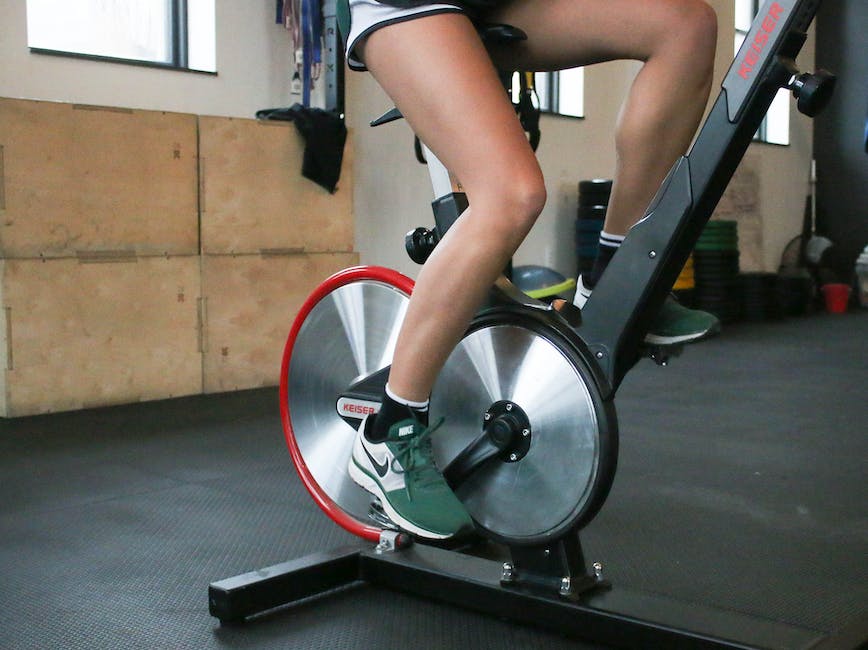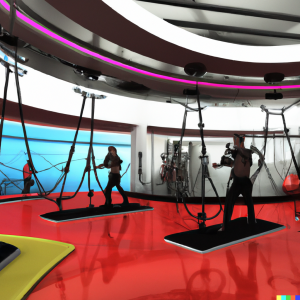
Getting Fit: Why It’s Vital For All of Us
Are you in need of a health kick? Don’t worry, you’re not alone! Keeping yourself fit can seem like a daunting task, but it is an important factor in both physical and mental health. In this article, we’ll look at why fitness matters to all of us and get you on the path to a healthier lifestyle.
List of Content
- 1. What is Fitness?
- 2. The Benefits of Getting Fit
- 3. How to Incorporate Exercise Into Your Life
- 4. Dispelling Common Excuses
- 5. Setting and Achieving Fitness Goals
- 6. Staying Motivated Longterm
- My Awnswers to your Questions
1. What is Fitness?
Fitness is an important aspect of health. It’s all about having the strength, endurance, and flexibility to do the activities you enjoy. Regular exercise helps manage weight, prevents chronic diseases, and keeps you feeling fit and energized.
Benefits of Staying Fit
- Improved physical health
- Increased strength and endurance
- Reduced risk of chronic illness and disease
- Improved mental health
Getting fit doesn’t mean hours of grueling workouts at the gym. Instead, it’s about finding activities you enjoy and doing them on a regular basis. This could include anything from walking or running to yoga and weight training.
Although it’s a good idea to check with your doctor before beginning a fitness program, most people only need to get 60 minutes of physical activity a day to reap the benefits on offer. Keep in mind that many activities can be combined into one session, making it easy to fit exercise into your daily routine.

2. The Benefits of Getting Fit
Getting Stronger
When you commit to a fitness regimen and start to reach new goals, your muscles become stronger. You can easily lift heavier objects and complete everyday tasks with ease, such as carrying groceries or picking up a child. Being physically fit also means less strain on your body, because you can handle more.
Improved Cardiovascular Health
Regular activity will often result in improved cardiovascular health. When you exercise, your heart rate increases and your blood vessels dilate. This not only lowers the risk of coronary heart diseases but also helps reduce your overall stress levels. As you continue to work out, your risk for stroke, heart attack, and certain types of cancer can also decrease.
Weight Loss and Improved Energy
Regular physical activity is key to maintaining a healthy weight. Through exercise, you’re able to burn more calories than you’re naturally taking in, and by achieving a regular workout routine, you’re able to continue to control your weight. Additionally, physical activity leads to a boost in energy levels, so you’re now able to power through your day-to-day tasks with much more enthusiasm.
Mood Booster
Finally, physical activity can drastically enhance your mood. The momentary “high” you get from working out releases endorphins throughout your body and decreases stress levels. This can help improve your capacity to think more positively and less negatively, leading to a more relaxed and confident mindset.
3. How to Incorporate Exercise Into Your Life
Make it part of your daily routine: Exercise should become an essential part of your daily routine, just like taking a shower or brushing your teeth. It could become the last thing you do before going to bed, it could be the first thing you do when you wake up, or you could remember to do it at lunch. Prioritizing exercise means it will always be there when the day begins.
Break it into smaller sessions: Thirty minutes of exercise every day may seem intimidating, but don’t despair. You can easily break the session into smaller segments. You could do 10 minutes on the morning, 10 minutes at noon and 10 in the evening. That way, you will still be getting the exercise in, but it will seem less overwhelming.
Find an activity you genuinely enjoy: Exercise should be something fun, something that you are motivated to do. That is why it’s important to find an activity you truly enjoy, or at least, you can tolerate. Maybe your thing is running, maybe you prefer martial arts, or maybe you prefer to do yoga. There are plenty of options to choose from, so it can’t hurt to try a few and find something you genuinely appreciate.
Do it with friends: Finally, it helps a lot to exercise with friends. Having a mutual activity, with people you like, can be a great way to keep yourself motivated and avoid feeling like an obligation. Also, having a goal to reach can be a great way to kick-start your exercise routine. So grab a couple of friends and make it a fun group outing.
- Make it part of your daily routine.
- Break it into smaller sessions.
- Find an activity you genuinely enjoy.
- Do it with friends.
4. Dispelling Common Excuses
When it comes to excuses not to vote, most of us have heard them all—there’s too many candidates or it’s too hard to decide who to vote for, not enough time, can’t be bothered, not sure how to vote, etc. While these excuses may be true for some, many simply use them as an excuse not to bother finding out any more in-depth information.
Here’s why you should at least take the time to learn more:
- Voting is your chance to have some influence in the decisions that affect you.
- It’s also your chance to elect people who are looking out for the needs and best interests of everyone, not just a select few.
Even if you really don’t feel like it, you can still choose to be an informed voter. It doesn’t take much—falling into the habit of reading news stories, especially policies from each candidate, comparing manifestos, and looking into past voting records will help you form your opinion.
Above all, remember that your one vote is more important than it seems. If you don’t have a strong opinion on the matter, or if you are still undecided, don’t let that stop you from exercising your right to vote.
5. Setting and Achieving Fitness Goals
The fifth and final step to achieving a healthier lifestyle is . To help you on the road to success, here are five tips for setting realistic workout goals:
- Prioritize your goals and stay determined. Setting real, achievable goals is important, but staying motivated is an even bigger part of the process. Focus on your priorities and push yourself to stay on track.
- Be specific about what you want to achieve. Knowing exactly what you want to achieve gives you something to work for and sets a clear path.
- Break up your goals into small, achievable steps. Concentrate on short-term goals that can be accomplished in a reasonable time frame.
- Focus on health, not aesthetics. Keep your physical health as the primary reason for exercising, rather than any aesthetic benefits.
Make a plan – and stick to it! Having a plan in place is the key to staying on track and achieving your fitness goals. Schedule your workouts for specific times and days and create short-term goals that can be accomplished each week.
As you make progress and achieve your goals, reward yourself for your hard work. It can be something small, like a piece of candy or a special coffee, to celebrate your success. This will help to motivate you to stay on track and keep striving for the next goal.
6. Staying Motivated Longterm
When it comes to staying motivated, it can be a challenge to keep up with the daily grind over an extended period of time. Here are a few tips to help you remain motivated long-term:
- Set Goals: define concrete goals and short-term objectives that will help you stay focused and give yourself something to strive for.
- Measuring Progress: by continuously keeping track of your progress, you can keep yourself accountable and remain motivated to push forward. You can do this by tracking your goals to stay on track.
Focusing on the outcome of your hard work is important to keep yourself motivated. When you can honestly see specific accomplishments, it can help to give you the extra push to keep going. So celebrate the wins and take time to pat yourself on the back!
Lastly, don’t forget to have some fun! If your task doesn’t sound enjoyable, you may have a harder time sticking to it. Change up the routine to add some extra excitement and you’re far more likely to have success in staying motivated long-term.
My Awnswers to your Questions
Q: What are some of the benefits of getting fit?
A: Getting fit gives you improved physical and mental health. It can help improve your overall mood, energy levels, and concentration – and reduce stress, depression and anxiety. Regular exercise helps to strengthen your bones and muscles, and can help reduce the risk of many health conditions such as heart disease, diabetes, obesity and certain types of cancer.
Q: What types of exercise should I be doing?
A: It’s important to do a variety of different types of exercise to keep your body healthy and improve your overall physical fitness. It’s best to choose a mix that incorporates both cardiovascular and strength training, as well as stretching and flexibility exercises. This will help to improve your strength and endurance, as well as promote flexibility and balance.
Q: How much exercise should I do each week?
A: The amount of exercise you should do will depend on your individual needs and goals. Generally speaking, the American College of Sports Medicine suggests that healthy adults should aim to get at least 150 minutes of moderate-intensity physical activity a week, on top of muscle-strengthening exercises two days a week. However, it’s best to speak to your doctor before starting any kind of fitness program.
Remember, it may not be easy to start exercising and making healthier choices. But with time, you will slowly become more and more fit and reap the benefits of improved physical and mental health. The key is to take it one step at a time, be patient, and keep going – It’ll all be worth it in the end.


